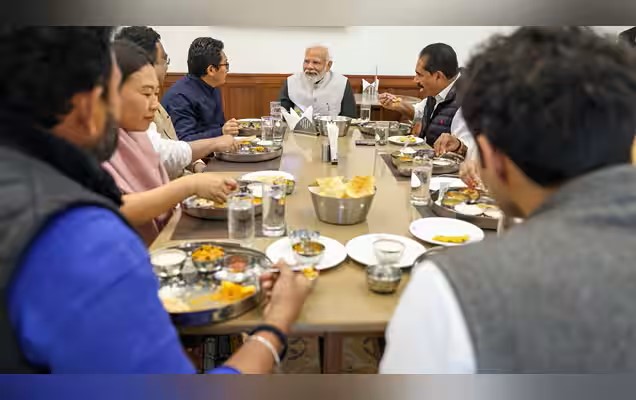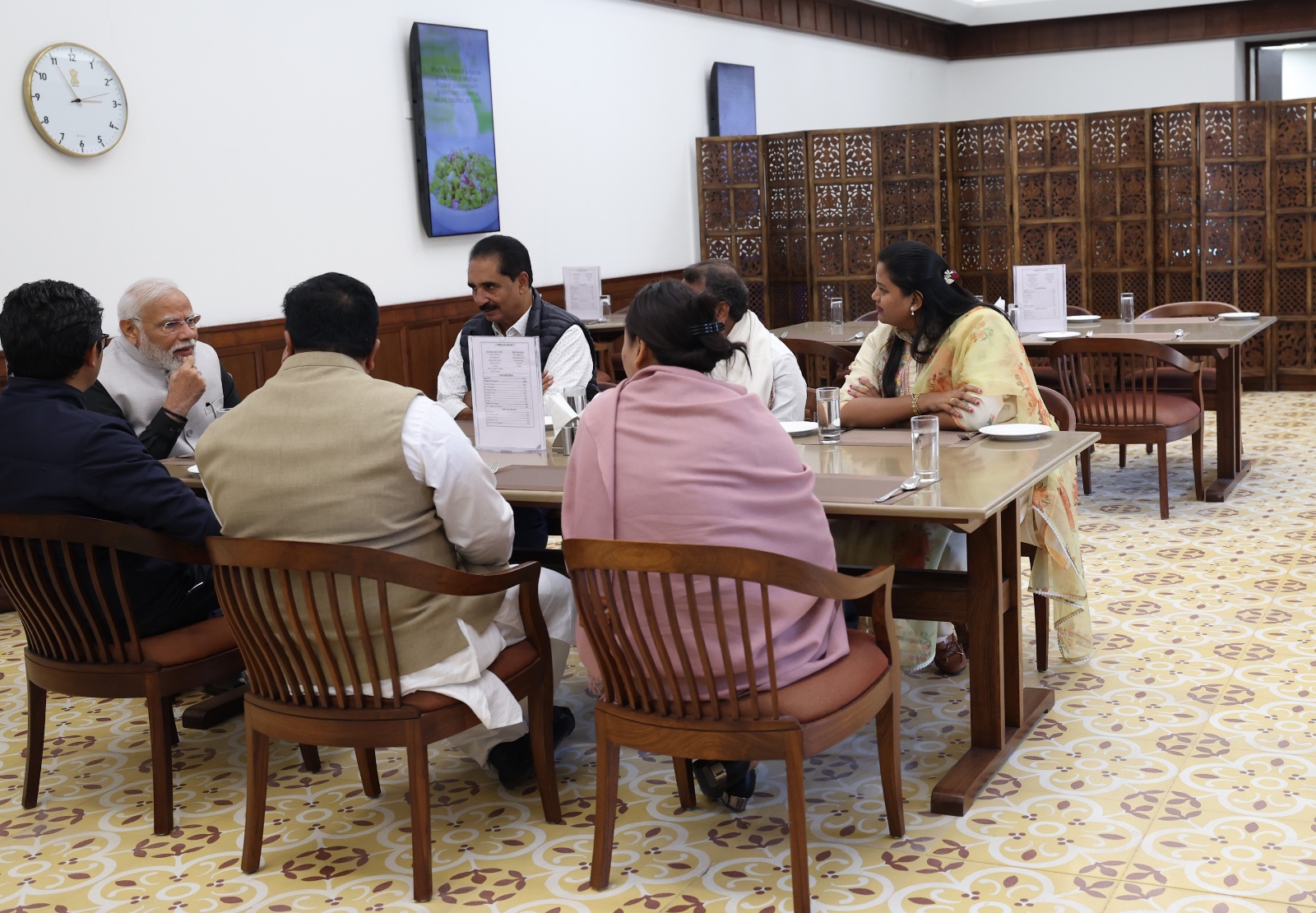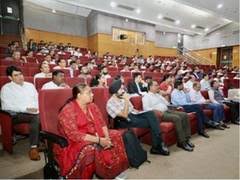Prime Minister Narendra Modi’s recent lunch gathering with Parliamentary colleagues from diverse political parties, as reported by PIB Delhi on February 9th, 2024, transcends the realm of a mere social event. This seemingly ordinary act carries considerable weight in the often fractious Indian political landscape, signalling a deliberate attempt to bridge divides and foster collaborative dialogue.
 While the official statement paints a picture of a convivial atmosphere and shared meal, the true significance lies in the deliberate effort to promote open communication and understanding across political spectrums. In a nation as diverse as India, with numerous political parties representing varied ideologies and constituencies, such interactions hold immense potential to break down communication silos and nurture a spirit of cooperation.
While the official statement paints a picture of a convivial atmosphere and shared meal, the true significance lies in the deliberate effort to promote open communication and understanding across political spectrums. In a nation as diverse as India, with numerous political parties representing varied ideologies and constituencies, such interactions hold immense potential to break down communication silos and nurture a spirit of cooperation.
Despite ideological differences, a shared commitment to India’s development and well-being binds elected representatives. Open dialogue and mutual understanding are essential for navigating complex challenges and seizing opportunities for national progress. Cross-party interactions, like this lunch gathering, provide a platform for representatives to articulate diverse perspectives, fostering empathy and potentially paving the way for more inclusive and effective policymaking.
The gathering also sends a powerful message to the public, emphasizing the importance of building bridges across political divides. In a democracy, healthy discourse and collaboration among elected representatives are crucial for ensuring the well-being of the nation. By engaging in open dialogue, political leaders set an example of civil discourse and collective responsibility, fostering a more inclusive and engaged citizenry.
While the specific details of the discussions remain undisclosed, the potential impact of such cross-party interactions cannot be overstated. Regular engagements between leaders from diverse political backgrounds can cultivate an environment conducive to collaboration, fostering a more vibrant and inclusive democracy.
It’s noteworthy that this isn’t an isolated event. Prime Minister Modi has a history of hosting similar gatherings, highlighting a consistent commitment to fostering cross-party dialogue. The frequency and inclusivity of such initiatives will be crucial in gauging their long-term impact on the political discourse and policymaking in India.
In conclusion, Prime Minister Modi’s lunch gathering transcends a mere social occasion. It symbolizes a deliberate effort to promote open communication and understanding across political divides. While the concrete outcomes of such interactions remain to be seen, the initiative itself marks a positive step towards a more collaborative and inclusive political environment in India. As leaders engage in regular dialogue, they have the potential to bridge divides, navigate challenges constructively, and ultimately guide the nation towards a brighter future.




